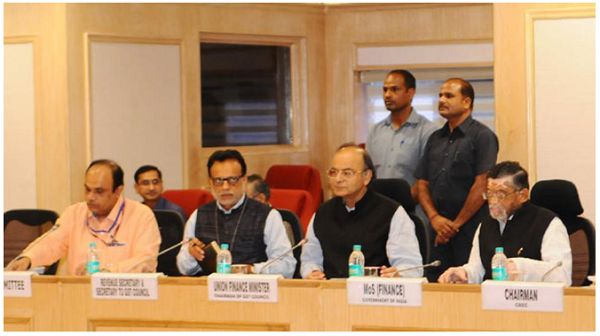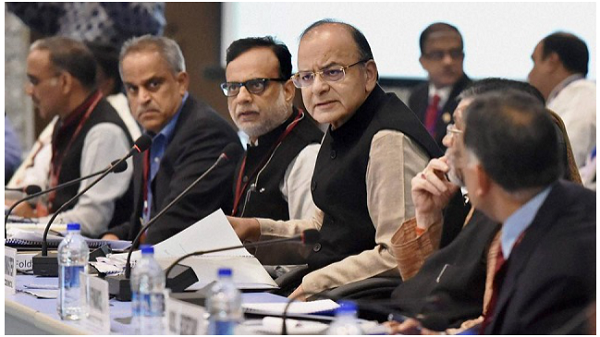SUMMARY OF MEETING
The all-powerful Goods & Services Tax (GST) Council in its 13th meeting held at New Delhi decided the followings:-
1. Approval to draft GST rules (5 out of 9) which were released in September 2016 duly aligned with GST law as approved by Lok Sabha on 29 March, 2017
2. The rules approved by GSTC are in relation to-
a) Registration of taxpayers
b) Payment of tax
c) Filing of returns
d) Invoicing,
e) Debit & Credit notes
f) Refunds
The tentative approval has been accorded to the remaining four set for rules which relate to:
a) Valuation of supply of goods / services
b) Input tax credit
c) Transition provision for migration to GST regime
d) Composition scheme rule
The main agenda for the next GSTC meeting would be to:
1. Grant final approval to tentatively approved four set of rules, and
2. Approval of rate structure in relation to individual items of goods and services
While it is expected that group of officers, both from the centre and states will now work as fitment of goods and services into the four GST rate slabs While it is expected that group of officers, both from the centre and states will now work as fitment of goods and services into the four GST rate slabs
There are some questions that remain to be answered:
1. Why this long gap of 48 days before next meeting?
2. Fitment of rates is crucial to be known to trade and industry to take strategic decisions and so is transition and input credit rules. Would mid May will not be too late?
3. What is the time frame for SGST legislation which has to be enacted by all 31 State legislative assemblies?
4. Administrative set of CGST / SGST / dual control must also be made public now pattern of which was decided earlier in council meeting
5. If the remaining rules, which are important and rates are to be decided after mid May / with less than 45 days for proposed 1st July date, it may be difficult for all stake holders to implement w.e.f. July, 2017.

“Today we discussed four set of rules—
- GST input tax credit rules,
- valuation rules,
- transitional provisions and
- composition rules,”
Finance minister Shri Arun Jaitley said.
The tentatively approved rules will be put up for public comments and industry can send their suggestions. The rules will be taken up for final approval in the next meeting.
The council has already approved rules on registration, return, payment, refund, invoice, debit and credit but they have to be altered to bring them in conformity with those provided in the GST Bills, explained Council meeting Chairmen Shri Jaitley.
“The next meeting will be held on May 18-19, where besides these rules being given final approval, the rates of individual commodities will be taken up for consideration. It will be held in Srinagar,” Finance minister said.

The rates in the four-slab structure of the GST will be 5%, 12%, 18% and 28%. A cess on certain goods will also be levied to create a fund for compensating states for any revenue loss in the first five years of the new tax regime.
Once the bills are passed in by both houses of Parliament, the government will issue a notification after the President’s consent. The states will then pass a separate law — the State GST (SGST) bill — to roll out the reform.
The passage of the bills removed years of political differences over the GST that will eliminate tax barriers, and subsume a host of indirect taxes levied by the Centre and the states, including excise, service tax, entertainment, entry, luxury and value-added taxes. And now with all GST-related rules being approved by the council, India is all set to rollout the biggest tax reform since Independence, and also keep the July 1, 2017, deadline.
More than a decade in the making, the GST is expected to shore up government revenue and spur economic growth by 1-2 percentage points. The government has gone on record to state that the tax burden will be reduced, but experts say the GST will stoke inflationary trends in the initial years.
Check Latest GST rate List here
HISTORY
| Council Meeting | Date |
| 1st Council Meeting | 22-23 Sept 2016 |
| 2nd Council Meeting | 30 Sept 2016 |
| 3rd Council Meeting | 18-19 Oct 2016 |
| 4th Council Meeting | 3-4 Nov 2016 |
| 5th Council Meeting | 2-3 Dec 2016 |
| 6th Council Meeting | 11 Dec 2016 |
| 7th Council Meeting | 22 to 23 Dec 2016 |
| 8th Council Meeting | 03 to 04 Jan 2017 |
| 9th Council Meeting | 18-01-2017 |
| 10th Council Meeting | 16-02-2017 |
| 11th Council Meeting | 04 to 05 March 2017 |
| 12th Council Meeting | March 16 2017 |
| 13th Council Meeting | March 31 2017 |
| Upcoming 14th Council Meeting | May 18-19 2017 |





